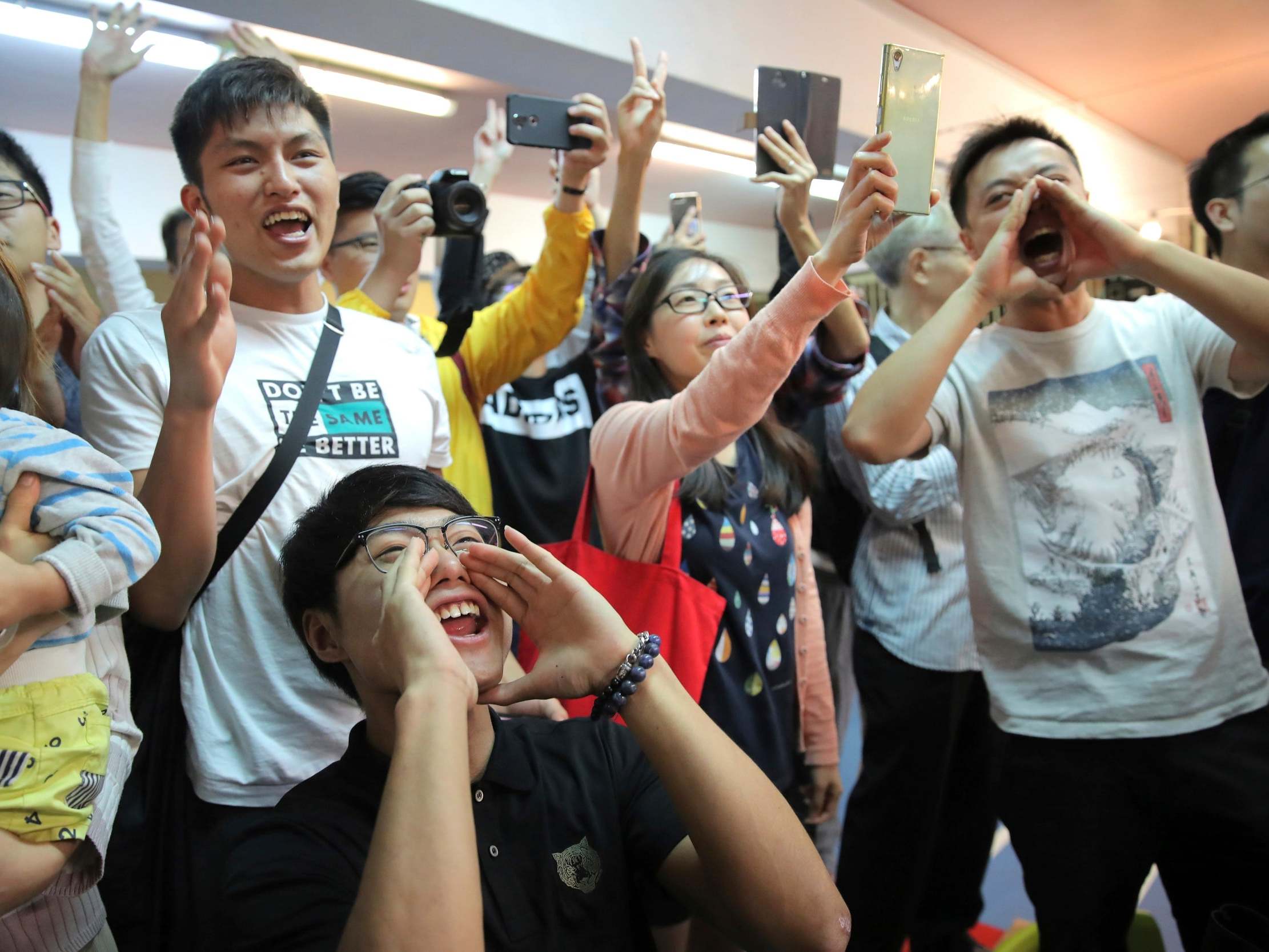Hong Kong elections: Carrie Lam vows to ‘seriously reflect’ after crushing defeat in polls
Pro-democracy parties win almost 390 of available 452 seats in district council elections

Hong Kong’s leader says the government will “seriously reflect” on a crushing defeat for the pro-Beijing establishment in Sunday’s district council elections.
Pro-democracy parties took 388 of a possible 452 seats, or nearly 90 per cent, a stunning swing from winning just 125 the last time these elections were held four years ago, according to public service broadcaster RTHK.
The result comes amid a backdrop of six months of anti-government protests, and even embattled chief executive Carrie Lam admitted that it reflected “people’s dissatisfaction with the current situation and the deep-seated problems in society”.
Street demonstrations were largely put on hold while the vote took place, and Ms Lam said in a statement the government respected the results and wished “the peaceful, safe and orderly situation to continue”.
Her government would “listen to the opinions of members of the public humbly and seriously reflect”, Ms Lam said.
Pro-democracy leaders hailed the results as sending a clear message for Beijing to end what is widely viewed as the encroachment of Hong Kong’s autonomy.
“This district election shows that the central government needs to face the demands of a democratic system,” said Wu Chi-wai, chair of the Democratic Party, Hong Kong’s largest anti-establishment party. “Today’s result is the first step of our long way to democracy.”
Tommy Cheung, a former student protest leader who won a seat in the Yuen Long district close to China‘s border, called it a “democratic tsunami”. “This is the power of democracy,” he said.
But even as the champagne flowed and opposition groups celebrated the victory, there were clear signals from Beijing that the Communist Party views the result as changing little.
Speaking to reporters during a visit to Tokyo, Chinese foreign minister Wang Yi said that “no matter what kind of things happen in Hong Kong, Hong Kong is a part of Chinese territory”.
He added: “Any attempts to destroy Hong Kong or harm Hong Kong’s stability and development cannot possibly succeed.”
The state-run China Daily newspaper said in an editorial on Monday the election “will hopefully have served as an opportunity to return the city to normal”.
“The relative tranquillity the city enjoyed since several days before the election suggests all stakeholders regarded it as an opportunity to air their views,” it said.
UK foreign minister Dominic Raab said he welcomed the elections and was “reassured” by Carrie Lam’s response.
“There is now an opportunity to find a way through the crisis with political dialogue that reflects the legitimate aspirations of the people of Hong Kong and respects the one country two systems model”, he added.
The protest movement began with major rallies in June as a response to attempts to pass a now-withdrawn extradition bill. Its leaders now insist they will not give up until their “five demands” – including a change of government and amnesty for those arrested during the protests – be met.
In practice, Hong Kong’s district councils mostly deal with highly localised issues, though they do have some say in the process for selecting the city’s chief executive. Voter interest is traditionally low, with the last election’s turnout registering at just under 1.5 million people.
On Sunday, more than 3 million of Hong Kong’s estimated population of around 7 million took part, equivalent to a turnout of 71 per cent of registered voters. Lester Shum, a former student leader who won a seat, said it seemed the general public had come out “to show their support for the [protest] movement, and the five demands, and their dissatisfaction with the Hong Kong government”.
“The district council is just one very important path of struggle. In future, we must find other paths of struggle to keep fighting,” he said.
Join our commenting forum
Join thought-provoking conversations, follow other Independent readers and see their replies
Comments
Bookmark popover
Removed from bookmarks